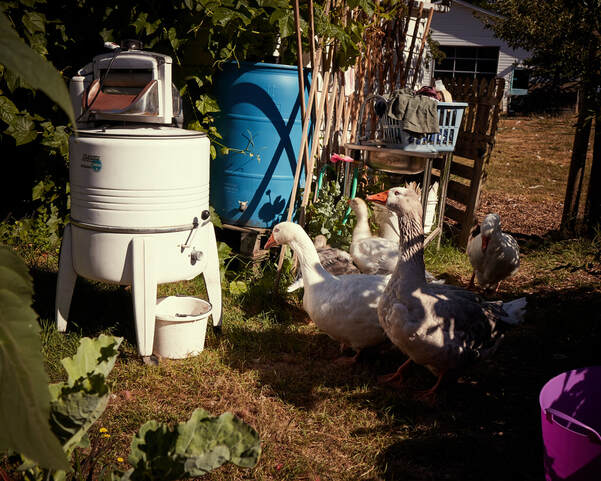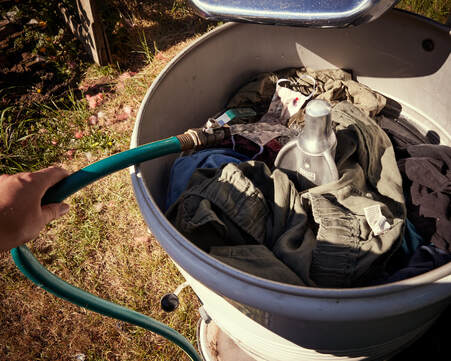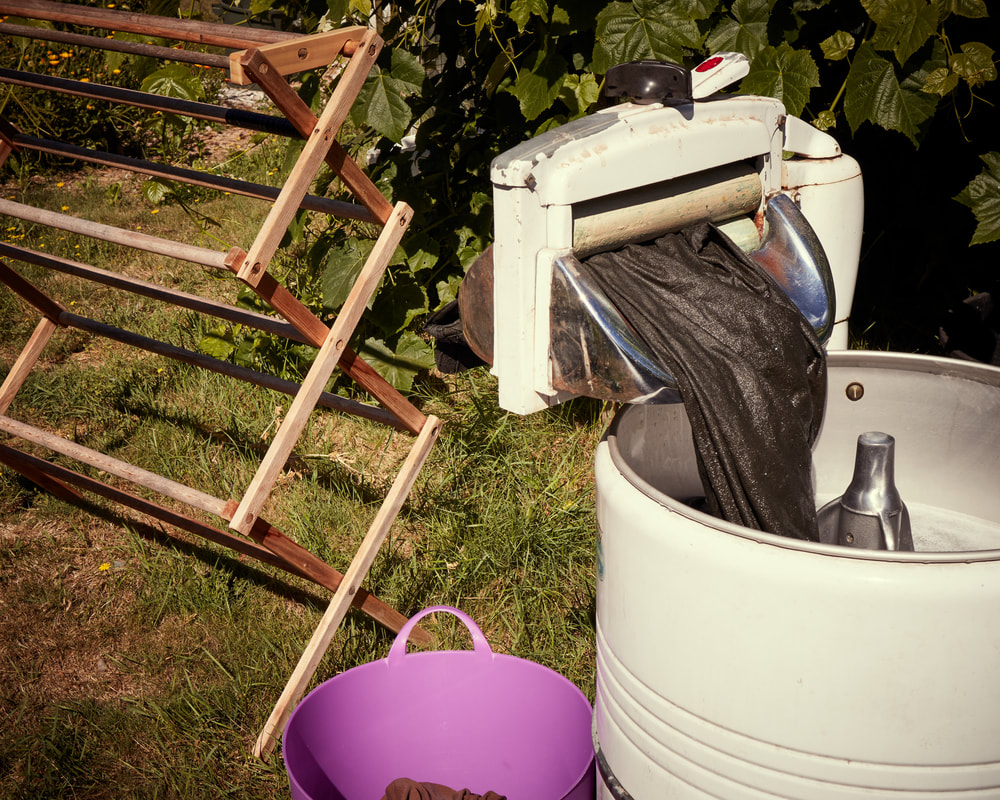|
4/8/2020 It's Laundry Day!Now that the grass has turned a disgusting shade of brown and summer has arrived with a vengeance, we're entering the next stage of water conservation on the farm. No water on the garden unless it is reclaimed water. Most of the year, I've been using reclaimed water from washing wool or dying. However, at this time of year, it's no longer sustainable to be using water in crafting every week. We need to reserve water for human and livestock needs first. Although I am expecting to get an indigo vat going this year as it doesn't require as much water as regular dyeing. Usually, I let the garden die, but this year, I'm feeling food insecure, so I want to get some winter crops planted to see us through the cold months. For this, I'll need to find water. What necessary household activities can I reclaim water from? That's where this vintage washing machine comes in! Click "read more" on the right to ...
This is why sorting laundry was crucial to people like my grandmother. I often wondered, why did she make such a big deal about washing my whites before my socks in a modern machine? With this vintage machine, it does matter because you run the load with the whites, remove them, then without emptying the tub, run the next load of laundry through. The same water can have two, three, or even five loads of laundry. Then empty the tank, fill it with rinse water, and start again! Add soap to the rinse water from the first load and we have new wash water for the next load. Think about it like washing dishes. One simply wouldn't wash the plates first then move on to the glasses and cups! (if you do this, we need to sit down and have a serious talk!) Glasses are fairly clean, especially if they are rinsed out before putting them next to the sink. Whereas plates get really dirty and greasy. Dirt and grease gets in the water (that's the point of washing up to remove the grime from the dishes and put it in the water) and if we wash the plates first, then all that dirt, grease, grime, whatever, will transfer onto the otherwise nearly-clean glasses making the effort to clean them go from a 0.02 units to a whopping 5 units of effort. There are schools of thought that suggest we shouldn't use soap or detergent on glasses - which make a lot of sense as hot enough water will make soap unnecessary for glasses and soap leaves a film that is unsightly and can cause gastric upset if not properly rinsed. But, it's more to do with soap interfering with the bubbles in beer. If you want my dishes rant, comment below and I might be persuaded. If I'm only doing one load of laundry, then yes, the ultra-modern, super-efficient, front-loading machine is best at water conservation. But if I'm doing several loads in one day, then this is the way to go! It gets the clothes cleaner too! Today, I'm off to do some laundry. First I will wash my sheets, then my city clothes, then my towels, then my farm clothes. It's going to take a while, but when I'm done each wash and rinse cycle, I'll have some lovely dark-grey water filled with nutrition (dirt) and natural insecticide (soap) for my garden. "One simply wouldn't wash the plates first then move on to the glasses and cups! (if you do this, we need to sit down and have a serious talk!)" You need to talk to my husband!!! I cannot get him to wash the glasses first because he isn't convinced that's the "correct" way to do it. He tells me that's not how he learned to do dishes, but we never get to how he actually learned this skill, lol. Your point about washing the least dirty things first is a good one. I'll see if that works. Comments are closed.
|
CategoriesAll Airwell Angora Animal Fibre Boring Community Cotton Dryland Farming Dye Etsy Shop Experiments Fibre Prep Finance Flax Frugal Household Management Indigo Linen Local Cloth Mediterranean Climate Natural Dye Permaculture Plant Fibre Sewing Silk Tutorial Urban Fibre Vintage Wildcrafting Archives
February 2022
|
|
Created by Tracy Wandling of One Wing Freelance Graphic Design
|



 RSS Feed
RSS Feed
